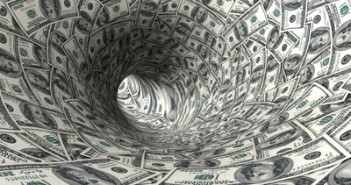Ben Bernanke made a huge effort to be dovish in his latest statement, but couldn’t ignore the improving job market. This improvement came as a surprise to him.
No QE3 in the Fed’s March 13th meeting will be no surprise, and not just because of this statement:
The Federal Reserve is dovish and tends to act in order to boost the economy, despite signs of improvement. This is the impression from Ben Bernanke’s soft tone and the extended pledge to keep interest rates at low levels until late 2014.
On the other hand, the meeting minutes have shown that the FOMC isn’t that keen to make a decision on QE3 in March. This is far from certain.
The Fed highlighted Europe as a risk factor. That’s hard to argue with. Yet the domestic situation is better, including in the two main fields that the Fed is looking into:
- Employment: The jobs report for January made skeptics work hard to find holes in. The US gained 243K jobs and the unemployment rate fell to 8.3%. Ben Bernanke stated that the recent figures understate the real situation. Since then, the 4 week moving average of jobless claims dropped to 359K as of February 23rd. This implies another drop in the unemployment rate. The improvement could be “blamed” on good weather. If the next Non-Farm Payrolls report on March 9th will be really good, it will be hard for the Fed to launch QE3 just 4 days afterwards.
- Housing: One of the options for QE3 is buying mortgage based assets in order to support the housing sector, that saw a boom and bust. The situation isn’t really good, but not that bad. It seems that single family homes are struggling, while multi-family homes are doing better. Recent housing sector reports have been somewhat encouraging. The arrangement with banks provides a small ray of light for foreclosed homes.
In addition, the Fed faces 2 headwinds for QE:
- Rising Oil Prices: Tensions are rising around Iran’s nuclear program, and the sanctions that followed. QE2 pushed commodity prices higher, and this included oil. QE3 will likely have the same effect – of crowding out money from bonds (or MBAs) to commodities and stocks. As the US consumer is reliant and exposed to changes in global oil prices, a rise in oil prices will actually hurt the US economy and will be counterproductive. If prices remain elevated, Bernanke will be reluctant to act.
- Political: The ongoing Republican primaries keep the heat on the activism of the Fed, even though the focus has shifted to social issues. Nevertheless, the question of the price at the pump is gaining traction in the Republican debates. Pushing the price higher during the heated debate isn’t the best timing.
This article is part of the special report about the Greek endgame. You can download it by joining the newsletter in the form below, which appears on any article on Forex Crunch.
